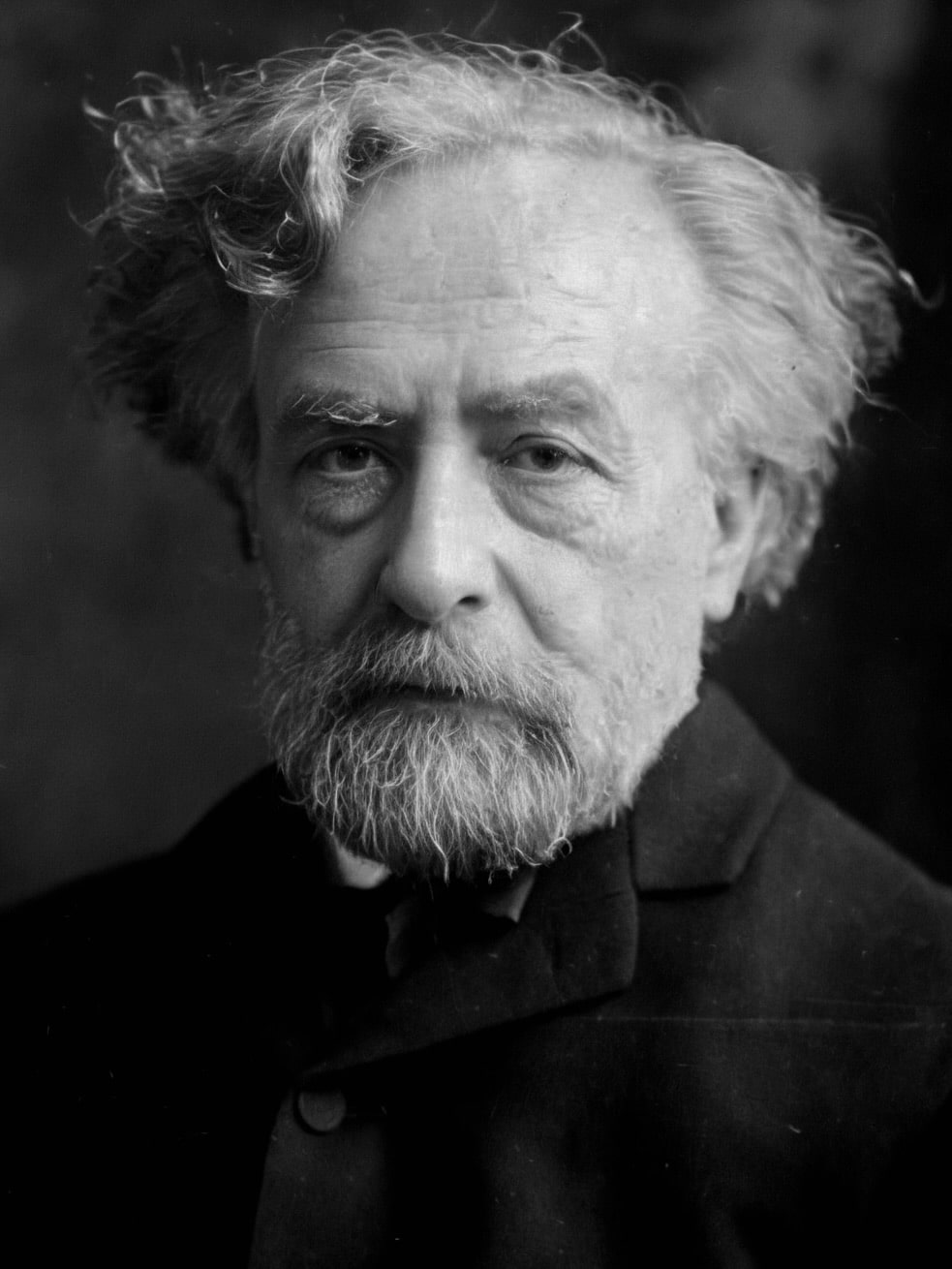Abraham Jacobi

Abraham Jacobi (1830-1919) was a German-born, American-practising pediatrician
Jacobi is widely regarded as the “Father of American Pediatrics.” A revolutionary exile from Germany turned pioneering New York physician, Jacobi fundamentally reshaped the treatment of children in the United States. He introduced pediatrics as a medical specialty, established the first dedicated children’s clinics and hospital wards, and advocated for a child-focused, socially-conscious approach to medicine that transcended the bedside.
Jacobi’s legacy extended beyond academia and clinical innovation: he was a public health reformer, institutional builder, and activist. Through rigorous scholarship, outspoken advocacy, and tireless institution-building, he ensured that children’s health became a priority in both medicine and society. His career remains a blueprint for medical professionalism, civic engagement, and compassionate care.
Biography
- Born May 6, 1830 in Hartum, Westphalia, Germany
- 1848–1851 – Participated in German revolutionary activities; imprisoned for two years on charges of high treason
- 1851 – Received MD from University of Bonn
- 1853 – Emigrated to the U.S.; opened medical practice in New York City
- 1859 – Appointed Professor of Infantile Pathology and Therapeutics, New York Medical College
- 1860 – Joined staff of Jews’ Hospital (later Mount Sinai Hospital)
- 1861–1870 – Held first professorship in childhood diseases in the U.S.; established first pediatric clinic
- 1866 – Co-authored Infant Diet with Mary Putnam Jacobi
- 1870 – Appointed Clinical Professor of Diseases of Children at Columbia University
- 1873 – Married Dr. Mary Putnam Jacobi; together they had two children (one died in early childhood)
- 1875 – Organized Children’s Department at Mount Sinai outpatient clinic
- 1879 – Established first inpatient pediatric ward in New York City at Mount Sinai
- 1880 – Founded and presided over the AMA Section on Diseases of Children
- 1887 – Appointed Chair, New York State Board of Medical Examiners; championed written medical licensure exams
- 1888 – Elected President, American Pediatric Society
- 1895 – Declined prestigious professorship in Berlin out of loyalty to the U.S.
- 1912 – Elected President, American Medical Association—the first foreign-born and Jewish physician to hold the role
- Died July 10, 1919 in Bolton Landing, New York
Key Contributions
Legacy in Pediatrics
Known as the “Father of American Pediatrics,” Jacobi was instrumental in shaping pediatrics into a distinct medical specialty. He was the first professor of childhood diseases at New York Medical College in 1861, established the first pediatric clinic in 1862, and later held the first chair in diseases of children at Columbia University (1870–1902).
His influence extended nationally: he was a founding member of the American Pediatric Society in 1888 and led the American Medical Association as its president in 1912—the first Jewish and foreign-born physician to do so. Jacobi championed age-specific therapeutics, bedside clinical training, and emphasized that children’s diseases required unique diagnostic and therapeutic approaches, separate from adult medicine.
Advocacy for Children and Public Health
Beyond clinical practice, Jacobi was a relentless advocate for social medicine and child welfare. Influenced by Rudolf Virchow and his own revolutionary background, Jacobi believed that improving children’s health required systemic changes in sanitation, housing, nutrition, and education.
He denounced large-scale institutional care for orphans, asserting “the larger the institution, the surer is the death.” Despite attempts to expel and silence him, Jacobi persisted, urging physicians to serve on school boards, health departments, and legislative bodies. His holistic view of pediatrics encompassed medical care, public health reform, and child advocacy, pioneering a model for physician activism that remains relevant today.
From Revolutionary to Medical Reformer
Before he was the “Father of American Pediatrics,” Abraham Jacobi was a young political dissident caught up in the revolutionary ferment of 1848 Europe. As a medical student, he joined the Communist League alongside figures like Karl Marx and Carl Schurz, and in 1851 was imprisoned for high treason in Prussia. After two years in chains and solitary confinement, he was acquitted during the Cologne Communist Trial of 1852 and fled to London—lodging with Marx and Engels—before immigrating to the U.S. in 1853.
Jacobi carried these radical ideals into his medical career, championing health as a human right and urging physicians to advocate not only at the bedside but in political and public forums. His revolutionary roots informed his lifelong insistence that social reform and medicine were inseparable, making him a forerunner of socially-engaged medical practice.
Jacobi and Mount Sinai Hospital
Abraham Jacobi played a foundational role in shaping pediatric care at Mount Sinai Hospital in New York. In 1860, he was appointed Attending Physician to the Jews’ Hospital (later Mount Sinai), and by 1875, he and his wife, Mary Putnam Jacobi, MD (1842-1906), had organized a dedicated Children’s Department within its outpatient dispensary. Their collaborative publication, Infant Diet (1875), highlighted their joint commitment to improving infant care.
Recognizing the overwhelming number of pediatric cases, Jacobi advocated for and established the first inpatient pediatric ward in New York City at Mount Sinai in 1879, serving as Chief. This ward provided specialized care in an era when children were commonly treated on adult wards, setting a new standard in pediatric hospitalization.
Major Publications
- Noeggerath E, Jacobi A. Contributions to Midwifery and Diseases of Women and Children. 1859
- Jacobi A. Dentition and its derangements. 1862
- Jacobi A. The raising and education of abandoned children in Europe. 1870
- Jacobi A, Jacobi MP. Infant diet. 1875
- Jacobi A. A treatise on diphtheria. 1880
- Jacobi A. Infant feeding and infant foods. 1882
- Jacobi A. Memoir of Austin Flint. 1886
- Jacobi A. The intestinal diseases of infancy and childhood, physiology, hygiene, pathology and therapeutics. 1887 (1903, 3e)
- Jacobi A. Rudolf Virchow. An address, introductory to the course of lectures. 1891
- Jacobi A. Clinical lectures on pediatrics. 1892-1893
- Jacobi A. Non nocere. 1894
- Jacobi A. Colectanea Jacobi. 1909 (8 volumes)
References
Biography
- “Festschrift” in honor of Abraham Jacobi. 1900
- Garrison FH. Dr. Abraham Jacobi (1830-1919). Science, 1919; 50: 102-104
- Dr. Abraham Jacobi. The Scientific Monthly, 1919; 9: 187-188
- Levinson A. Pioneers of Pediatrics 1943: 102–5.
- Haggerty RJ. Abraham Jacobi, MD, respectable rebel. Pediatrics. 1997 Mar;99(3):462-6.
- Burke EC. Abraham Jacobi, MD: the man and his legacy. Pediatrics. 1998 Feb;101(2):309-12.
- Ligon-Borden BL. Abraham Jacobi, MD: father of American pediatrics and advocate for children’s health. Semin Pediatr Infect Dis. 2003 Jul;14(3):245-9.
- Hansson N, Oommen-Halbach A, Borkhardt A, Fangerau H. Nobel Prize nominees hundred years ago: Abraham Jacobi (1830-1919) and Otto Heubner (1843-1926). Eur J Pediatr. 2017 Oct;176(10):1411-1413.
- Gunderman RB. Inspiring advocacy: Abraham Jacobi. Pediatr Radiol. 2020 Feb;50(2):164-165.
- Kutzsche S. Abraham Jacobi (1830-1919) and his transition from political to medical activist. Acta Paediatr. 2021 Aug;110(8):2303-2305.
- Abraham Jacobi 1830-1919. Neonatology on the web
Eponym
the person behind the name
Dr. Sylvia Garcia, MD is an Assistant Professor of Emergency Medicine and Pediatrics. She is an Assistant Program Director for the Emergency Medicine Residency at Mount Sinai Hospital where she oversees pediatric education for the emergency medicine residents, and EM education for pediatric residents | Sinai EM |
BA MA (Oxon) MBChB (Edin) FACEM FFSEM. Emergency physician, Sir Charles Gairdner Hospital. Passion for rugby; medical history; medical education; and asynchronous learning #FOAMed evangelist. Co-founder and CTO of Life in the Fast lane | On Call: Principles and Protocol 4e| Eponyms | Books |

